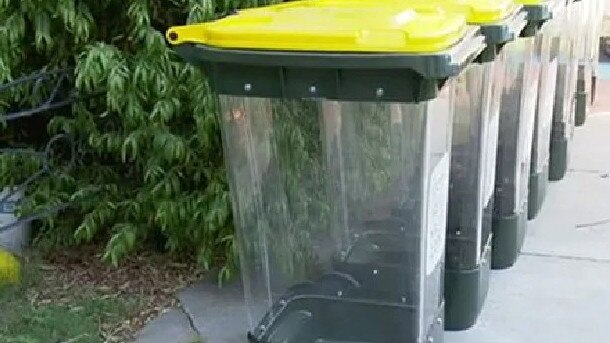Push for transparent bins in Adelaide CBD to wage war on waste
An Adelaide City councillor has proposed rolling out see-through bins as a way of “naming and shaming” people who do not recycle properly.

City
Don't miss out on the headlines from City. Followed categories will be added to My News.
See-through bins should be used across the city and North Adelaide as a way to “rubbish shame” people and bring clarity to recycling practices.
During a workshop about waste management, Cr Rob Simms suggested the council look into making recycle wheelie bins transparent as a way to wage the war on waste.
Cr Simms told the meeting clear wheelie and street bins would ensure the council remained a leader in recycling.
“If we want to encourage behavioural change, I think this is something that will really encourage people to do the right thing … and we have a reputation as a clean, green city,” Cr Simms told The Advertiser after the meeting.
“In a way, it is kind of naming and shaming.”
He said it would also help people who rummage through bins to take advantage of the state’s container deposit scheme, where 10 cents is given for each item.
“At the moment, we have people trying to fish things out of bins and that can be difficult,” Cr Simms said.
That push, which Cr Robert Simms intends to lodge a motion about in the near future, was backed by Cr Alex Hyde.
“I agree with Rob’s idea and we should rubbish shame people,” Cr Hyde said.
Last year, Mindarie Regional Council in North Perth introduced kerbside transparent bins into some homes as part of a waste reducing initiative.
The Mindarie Regional Council is one of Western Australia’s largest waste management authorities.
The bins were being used across seven council areas in Perth.
It was part of a wider Face Your Waste campaign to encourage people to think twice before throwing out their rubbish.
KESAB executive director John Phillips said education was “imperative” to ensuring cleaner waste and improving recycling.
“If a clear bin was an option to build on education and engagement, as long as there is the appropriate information, resources and monitoring behind it, of course we would support it,” Mr Phillips said.


